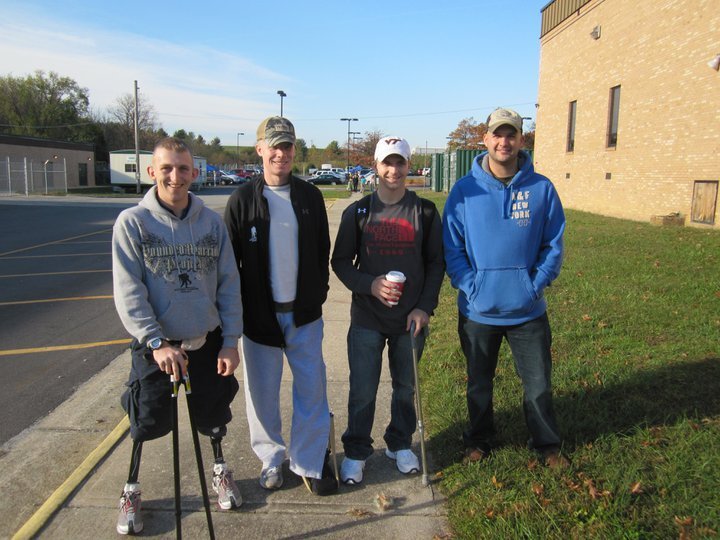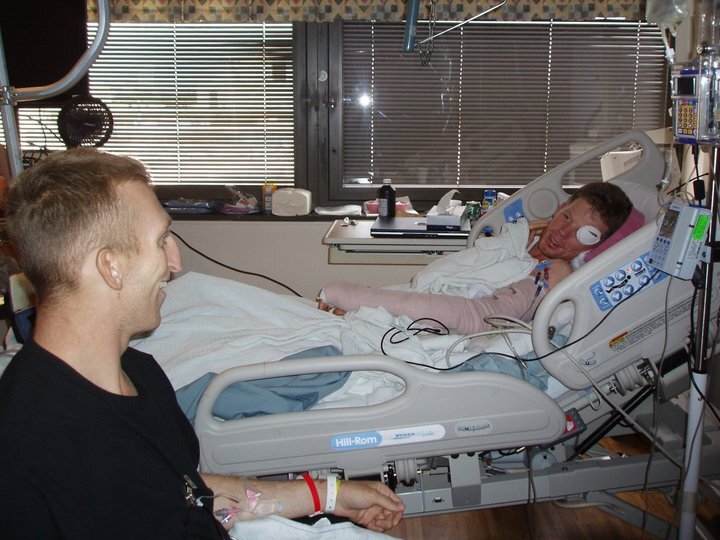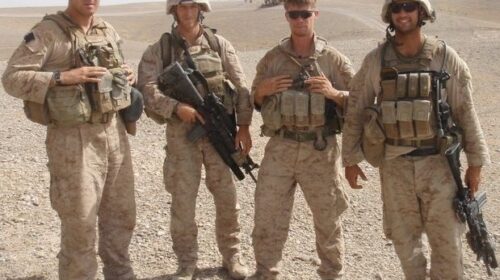Daniel Jones joined the Marine Corps Reserves in 2005 while attending the Virginia Military Institute. As a Combat Engineer with Bravo Co. 4th CEB, he deployed to Iraq in 2008 and Afghanistan in 2010. He was medically retired in 2014 following injuries sustained from an IED blast in Afghanistan. Currently he is living in Richmond, VA and working in the forestry industry while exploring a writing career.
Over the past six months, I had been told over and over that there was no way to know just how much use I would get out of my questionable left leg, which was still mangled and painful from an IED blast. And now that I had been cleared to run, I was being told once more to set my sights lower. In that moment two emotions began to swell up in unison. The first was a “screw you” mentality I had slowly developed during my recovery. The second was the sickening feeling that I was already being defined by my injuries.
Erasing my definition
In my mind, being defined by my injuries meant I would forever be defined by my failure. My MOS in the Marine Corps was 1371, Combat Engineer. My primary role was to provide the Marines I was working with mobility and safety by locating Improvised Explosive Devices. On July 22, 2010, in the Sangin River Valley, I officially failed at my job. I triggered the IED that took me out of the fight and led me to that moment in front of the treadmill.
My kinesthesiologist wasn’t the first person to question my abilities. Friends and family members had expressed their concerns, acting under the assumption that any chance of me serving again or being as active as I had been before was out of the question. Their concerns were valid. Originally, my doctors had thought that my leg would need to be amputated since they couldn’t locate the nerve that controlled my lower leg. After numerous surgeries, they located that nerve, which gave me the option to keep my leg. Even so, there was no way to know how much use I could get out of it.
As a Marine and a very active individual in general, not having full use of my leg was almost incomprehensible. I’ve always taken great pride in being more than physically capable. Leading a physical lifestyle was one of the things that led me to the Marine Corps, and one of the reasons I enjoyed serving. Erasing my mobility, to me, was the equivalent of someone erasing my definition.
Taking the first step
I can’t pinpoint the exact moment when my “screw you” mentality developed. It could have been a learned trait from serving with so many amazingly determined Marines in Afghanistan who put mission success above everything else. It could have been a natural response to being told I couldn’t do something over and over during my recovery.
No matter when it developed, that mentality became the primal resolve that drove my recovery. Every questioning moment became a challenge. Proving my everyone wrong meant more to me than anything. It wasn’t always a healthy manifestation, though. (Kettlebell swings with a HALO device on your leg isn’t smart.) Still, I was finally starting to define recovery on my own terms.
Focusing on the objective and doing the work
As simplified as it sounds, I genuinely believe that once you define a problem you intuitively start seeking out solutions. I defined the problem as not being as physically capable as I was before. Searching for solutions ultimately led me to a Crossfit trainer, Matt Bahen.
At the time, Matt was still serving in the Navy as an EOD Tech. Matt more than understood what IEDs and combat can do to people. He also had the experience and passion to know what it takes to work past those outcomes. Matt’s process was simple. He defined my limitations in clear terms and goals, then made me run drills over and over until the basics were instilled. From there we drilled the basics even more and incorporated a unique interval and training protocol.
Success wasn’t simply a matter of programming, though. Matt had the intuition and expertise to know when to push and when to pull back. He took my “screw you” mentality and gave it work to focus on. He built a positive outlet for the uncertainty, anger, and other emotions I was feeling. Matt was cognizant of the struggles I had, but never let those interfere with the training. Gradually my physical and nerve pain subsided while my strength and overall abilities increased. In hindsight, outside of the team that helped save my leg, the work and focus Matt gave me is the real reason I have my leg.
Define success on your own terms
It’s probably better my kinesthesiologist didn’t know what I was thinking when she tried to reel in my expectations. Just to spite her I ran a mile in twelve minutes. It was clumsy and hurt like hell, but I beat my goal and hers.
That was the moment I realized surpassing everyone else’s expectation was a true possibility. The pain and awkwardness were just setbacks to be endured. Since then I’ve had to recover from other residual injuries from the blast. Like, how do I deal with my failures when I see them in the mirror every day? What do I have to offer the civilian side of life? Will anything ever compare to being a Marine deployed to a combat zone?
I struggle to answer these questions even now, so I certainly won’t try to for anyone else. Still, I can offer the one insight that I learned from my experience that I believe is most important: Define success and what that means to you for yourself. Don’t let anyone, even the most well-intentioned loved ones, define who you are or are going to become. Once you’ve achieved that definition, take the first step and do the work.


To learn more about The Bar X Project, click HERE.
